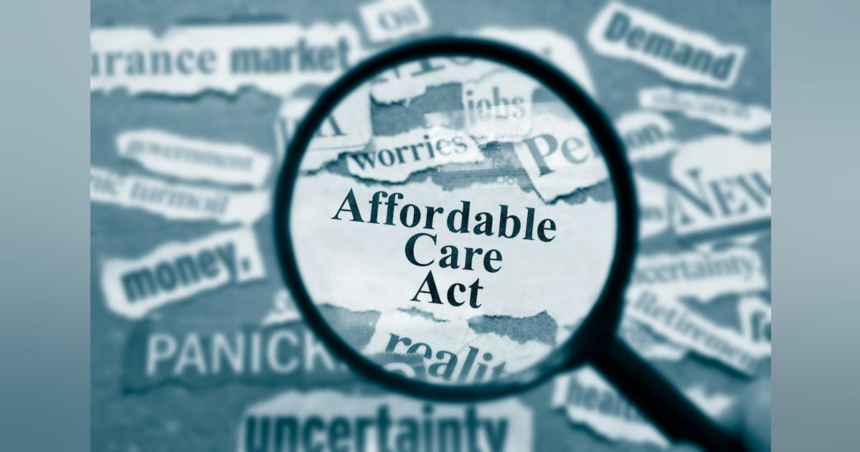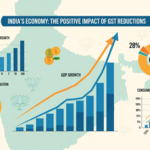On April 9, Families USA, the National Immigration Law Center, and Young Invincibles hosted a discussion on the Centers for Medicare & Medicaid Services (CMS) 2025 Marketplace Integrity and Affordability Proposed Rule and the policy changes set to roll back recent coverage and access gains. This includes preventing Deferred Action for Childhood Arrivals (DACA) recipients from enrolling in coverage, limiting open enrollment periods, increasing premiums and out-of-pocket costs, and prohibiting insurers from covering gender-affirming care as part of health benefits, according to Families USA. CMS announced the proposed rule, designed to protect people from being enrolled in Marketplace coverage without their knowledge or consent, on March 10.
During the press meeting, Anthony Wright, executive director of Families USA, stated that the proposed rule is the opposite of what people thought they voted for, “Americans voted for lower costs…. If the Trump administration rule proceeds, it will reduce premium tax credits and allow insurers to raise out-of-pocket charges, which would raise the cost of health coverage by hundreds of dollars.”
Additionally, Wright added, it would make coverage harder to get on and stay on and would ultimately leave more Americans uninsured, living sicker, dying younger, and being one emergency away from financial growth. The proposed rule limits enrollment opportunities for people whose incomes rise above poverty, making it harder for others to enroll by shortening the enrollment period, Wright explained.
“We should note that this Trump rule targets populations to be explicitly denied for coverage in care,” Wright underscored while mentioning Dreamers, immigrants, and trans people.
Kristin McGuire, executive director of Young Invincibles, an advocacy nonprofit organization for young adults, said the proposed rule is an attack on young people’s access to healthcare. “We’ve known for years that access to healthcare plays a major role in young adults’ finances.”
“We’ve seen enrollment skyrocket,” McGuire said about the ACA (Affordable Care Act) Marketplace, “with over 5 million young people signing up during the plan year 2024 open enrollment period.” “Unfortunately,” she added, “despite these gains, young adults remain the age group most likely to be uninsured.”
“This proposed rule is nothing but an attack on young people’s access to affordable health coverage,” McGuire emphasized. “By eliminating the year-round special enrollment period for people with low incomes, there will no doubt be many young adults facing gaps in health coverage.”
“The administration claims consumers are taking advantage of the low-income special enrollment period by claiming an inaccurate income in order to qualify only when they become sick and need coverage,” McGuire explained. “First of all, the marketplace has safeguards against this practice. Secondly, there’s actually no evidence to suggest that people actually do this. Taking away opportunities to get covered is not the way to eliminate fraud and abuse,” she posed.
Ben D’Avanzo, senior strategist of Health Policy with the National Immigration Law Center, agreed that the proposed rule is an attack on specific populations. “The Trump administration’s proposal to end DACA recipients’ eligibility for ACA coverage is an attack on immigrants, youth, and their families.”
“DACA recipients are excluded by law from major public health insurance programs like Medicaid,” D’Avanzo said. “However, the ACA allows lawfully present immigrants to enroll in its coverage. The administration is wrong to again exclude DACA recipients from the definition of lawfully present, less than a year after they were made eligible, causing confusion and uncertainty among an already vulnerable group.”
“This rule will deny healthcare to the one in five DACA recipients who report being uninsured,” D’Avanzo noted. Additionally, “this proposal will also harm the more than 300,000 children who have at least one parent with DACA.”
Furthermore, D’Avanzo said, “DACA recipients disproportionately work in the healthcare sector. Denying them health coverage, such as when they are in medical school or in training, is wrong. We should be investing in this population, not denying them healthcare.”
“This administration is doing nothing to address our country’s actual healthcare needs,” D’Avanzo added. “If we learned anything from the COVID-19 pandemic, it is that our healthcare is all interconnected. Arbitrarily excluding a group of some of our country’s most withstanding community members from coverage is counterproductive and unjustified.”
Randei McTaggert, a Colorado marketplace consumer, spoke of how her ACA plan helped her with receiving treatment for melanoma. “Having access to healthcare through the Affordable Care Act became life-saving for me.”
The advocacy organizations are submitting comments ahead of a Friday deadline to express their opposition to the proposed rule for marketplace integrity.


























